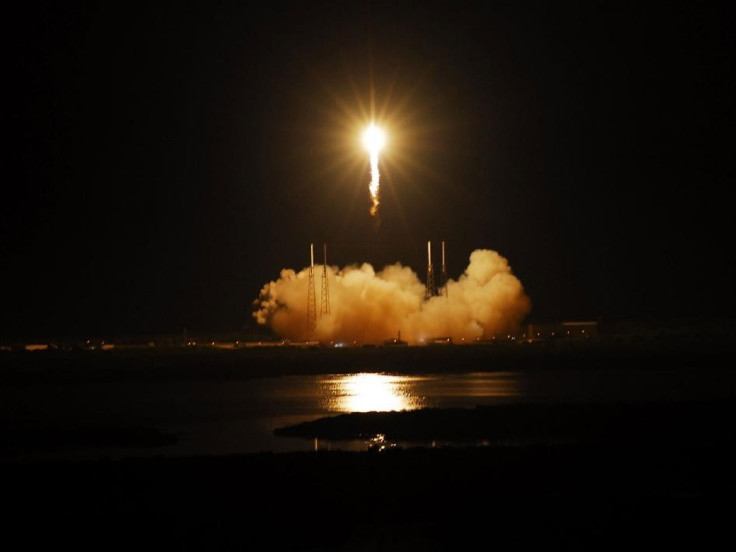Russian Sanctions Could Hurt Boeing (BA) And Lockheed (LMT) Unless Russia Leaves Crimea, But SpaceX's Elon Musk Has The Answer To U.S. Reliance On Russia's Rockets

As Russia’s occupation of Crimea continues and U.S. sanctions against the former Soviet country start to take shape, there are worries in Congress about how sanctions could impact the Pentagon’s $70 billion satellite launch program, which involves Russia and a joint venture between the Boeing Company (NYSE:BA) and Lockheed Martin Corporation (NYSE:LMT).
Under the current arrangement, the United States has to pay Russia for rides to the International Space Station and use its engines to launch military and spy satellites of its own. This could be tricky for the U.S. as it’s illegal for the U.S. or government-affiliated companies to use parts from potential future enemies of the country. It was the same law that caused outrage over the F-16 jet fighter, which had been assembled using parts from China. Russia could fall into the same category, given the events unfolding in Crimea.
With the uncertainty about the project under new sanctions, Elon Musk, the co-founder of Tesla Motors Inc. (NASDAQ:TSLA) and owner of Space Exploration Technologies Corp., known as SpaceX, waded into the issue in front of Congress and explained that his rockets are made in the U.S. and would not be impacted by any sanctions.
“It’s just kind of embarrassing that the United States has to thumb rides from the Russians,” said Elon Musk in a Bloomberg television interview.
Musk told the Senate subcommittee that Boeing and Lockheed’s joint venture, United Launch Alliance LLC might be at risk under any sanctions the U.S. bring against Russia.
President Obama announced Monday that about 11 Russian and Ukrainian nationals would have their assets frozen, and he warned of further measures if Russia did not leave Crimea.
Musk’s appearance in front of the committee had little to do with compassion for Boeing and Lockheed’s potential Russian headache, but rather seemed like a way for him to muscle in on the $70 billion launch program created after the U.S. retired its shuttle fleet in 2011. He said the U.S. should phase out the current option, an Atlas V Rocket, which uses Russian engines, for “long-term security of the country.”
SpaceX has already made some inroads into the market. It was the first private company to dock at the space station and it now makes regular cargo deliveries under a $1.6 billion contract with NASA. Among its next goals: to develop a craft that transports astronauts and get some of the $70 billion government funds so it can launch satellites into space.
It’s unlikely that the tension between the U.S. and Russia will affect the international space station given that the U.S. and Russia rely on each other to keep the operation running. In addition, the U.S. will pay Russia significant sums to Roscosmos, the Russian equivalent to NASA, to ferry astronauts to the space station in 2016. An email from a NASA spokesperson said that the two agencies have maintained a good relationship throughout the ups and downs of U.S.-Russian relations.
However, in the same email, the spokesperson said that NASA would look to award contracts to U.S. companies, helping end the reliance on Russia for getting to space, but that won’t end the reliance on Russian engines, which could still be used to launch satellites.
Defense Secretary Chuck Hagel has already said that the U.S. will look into replacing the Atlas V rockets in light of Russia’s actions in Crimea. However, that could take a while. Michael Gass, the CEO of the joint venture, told the senators that the U.S. had fallen behind in technological terms and a delegation from the joint venture that visited Russia said the Russian engineers and scientists were doing things that “our textbooks said was impossible.”
But the clock is ticking. Gass said they have around two years’ worth of engines left and blueprints to build more; however, it might not be viable to build the engines fast enough to meet the current demand.
© Copyright IBTimes 2024. All rights reserved.






















